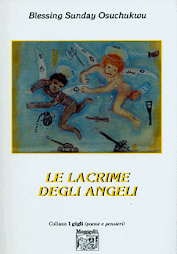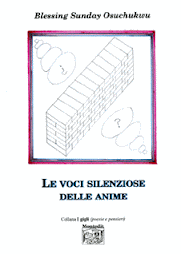
Eating in Italy is not just considered as a simple consumption of meals but something quite more than that. It is a rite, a sacred one. It is the moment when members of a family come together to “celebrate” the day, to give the merited “justice” to their stomach, to tell themselves that they acknowledge the importance of energizing and revitalizing their bodies and to enjoy the symbol of their daily sweat. Hence, it is a solemn time when no one should disturb, time when no one should delay the others from performing this rite. For every particular meal, the chairs at the table are counted to match the number of persons who are going to participate, any uninvited “intruder” is almost considered as a fool, uncivil and coldly received. So, even a son or a daughter who is no more living with the family has to call them to anticipate his or her presence for the meal – this is mostly because the quantity of food to be cooked is always measured and having someone coming to reduce the quantity for the other is simply considered unacceptable and disrespectful. While the time for breakfast is becoming very personalized - when one awakes in the morning - the lunch is normally considered to take place from around hrs 13 to hrs 14, and the supper from around hrs 19:30 to hrs 21. Phone calls made at these times are also considered disrespectful. Traditionally shops and most offices are closed at lunch time (imposed by a norm) to permit people to get back to their homes to eat and perhaps take a little siesta before going back to work, lately though, more people are staying back to eat light foods at the public places and this norm is no more rigidly applied in some places.
The three major meals in Italy are: breakfast, lunch and supper. But there are two other intervals dedicated to snacks; “merenda” and “spuntino”. For the adults, the Italian breakfast is not as rich or heavy as the Nigerian/African traditional breakfast (with loaf of bread, fried egg, butter, pap or custered with “akara”, ecc,), for the children it is meant or made to be rich, mostly with cereals. Below are some examples of what and how Italians eat:
1) Breakfast
The typical Italian breakfast is made up of “Cappuccino” and “Cornetto”. The “cappuccino” is a mixture of coffee and milk with a little foam produced by the milk during the warming process. “Cornetto” is a snack, normally supplied fresh to the bars every morning. For some Italians it is enough to take an ordinary coffee in the morning as breakfast. Most of the working-class Italians take their breakfast at the bars, on their way to their various places of work. It is not just enough to order for a coffee in a bar to get what you want, it is always necessary to specify which and how you want it as there are many ways to consume coffee in Italy:
“Caffé semplice” (ordinary coffee), “caffé macchiato” (coffee with small milk), “Cappuccino” (as explained above), “Caffé lungo” (diluted coffee – not concentrated), “Caffé corretto” (coffee with some liquor added to it), “Latte macchiato” (a glass of milk with little coffee to color it), “Caffé hag” (the African type of coffee – decaffeinated), ecc.
2) Lunch
The traditional lunch in Italy is made up of a minimum of three course meal: “Il primo” (the first course or plate) which is the main food, normally pasta or rice. The second course is termed as “Il secondo”, and that is the meat, fish or cheese. In the Italian cookings, meat is separated from the fish, unlike in most African countries where these two things are mixed together. And then there is the third course, “Il terzo” or “Il contorno”, which in most cases accompanies the second course, and that could be the fresh salad or cooked vegetables. In Italy, It is very important to note that bread plays a vital role during meals and it is meant to accompany mostly the second course, but then even the third course. After this normal meal comes the consumption of fruits and the indispensable coffee. It is often difficult to find “unique course” meal (“piatto unico”), where everything – including the fish or the meat – are all put together in one preparation. In the recent years though, the invention of unique courses are taking momentum. Family members do come together at a place (normally at the parent's house) for the lunch on Sundays.
3) Supper
The traditional supper is almost prepared like the traditional lunch and the much importance given to one or to the other is culturally becoming a more personal issue, some people, especially at work, do eat lighter things during the lunch and more during the supper, while some others do it the other way round. Another important course which is not too common these days during the lunch, “Il dolce” (cake), is more consumed at th supper, and this comes up before or during the coffee time.
It is vital to know that the Italians, as part of their eating rite, consumes wine during their meals: the white is normally used to accompany a fish-based meal while the red wine is for the meat.
Other little things to know about eating in Italy: when you invite an Italian for a dinner in your house, it is very normal to see him come with a bottle of wine or cake. And when they invite you, one would presume they expect the same kind of gesture.
When an Italian invites you to a restaurant, it is always advisable to have some money with you because normally they practice “alla Romana” (“the Roman way”), which consists in sharing the bill equal. Some Africans still don't agree with this method especially when their Italian girlfriends demand to pay part of the bill, it is a pride for an African to “settle” such bills alone. It is also important to know that when we say in Africa that the Westerners don't eat too much food, it is that they don't eat too much of one particular thing served on the table, but they eat enough of each course. And of course all that has been said - remaining basic points of reference - could also vary from one person to the other, from one family to the other and from region to region.
N.B: This mediation is always subject to further integration and modification, if and when necessary.
Blessing Sunday Osuchukwu























6 commenti:
Bless.......alcune notizie sono un po' da rivedere è, ma che pubblicità ci fai???? :))))
In che zona vivi?
:)
Bibi
Sir
I think you are generalizing about italian meals. if you give a look to italian cookbooks you can notice unique courses becoming more and more frequent. maybe you are talking of ufficial meals, when someone is invited.I don't think that in this case one extra person causes a lot of commotion also because italians like to show off and prepare a lot of extra food. The problem might arise when nobody is supposed to come and somebody comes all of sudden.austerity measures are unfortunalely frequent nowadays also among nigerians.
Sinceramente mi aspettavo un pò queste reazioni, ecco perchè ho messo quella nota sotto. Comunque, quello che ho cercato di raccontare è la sintesi di diverse esperienze e racconti non solo miei ma anche di molte altre persone, tra le quali italiane stesse. Ovviamente ci sarebbero da scrivere delle pagine per poter spiegare meglio queste tradizioni, ma ho cercato di far capire a un africano medio le differenze più significative che ci sono: ad esempio, misurare il cibo prima di cucinare è il classico stereotipo che noi africani attribuiamo agli occidentali, non solo italiani, e il fatto che lo dico non è affatto per criticare, anzì, io lo faccio dal momento in cui gli esperti consigliano la quantità giusta per una persona. Quindi che sia chiaro che gli occidentali che lo fanno non sono più poveri degli africani che non lo fanno, è solo una questione di tradizione. Perchè mentre gli occidentali spesso preparano un pasto per consumarlo tutto all'istante, gli africani preparano un pasto per farlo avanzare - perchè mentre un africano cucina pensando che potrebbe passare un parente o qualche ospite dopo per essere servito, un occidentale, tradizionalmente, lo prepara per quelli che ci sono. Insomma, mentre in Africa esiste, in occidente non c'è la tradizione di chi sa chi che passa in qualsiasi orario per chiederti: "cosa ha cucinato da mangiare?"
@ "Anonimo":
Tu hai detto: "The problem might arise when nobody is supposed to come and somebody comes all of sudden."
Well, this is exactly what I meant when I said: "For every particular meal, the chairs at the table are counted to match the number of persons who are going to participate, any uninvited “intruder” is almost considered as a fool, uncivil and coldly received."
Maybe I exaggerated with the term "fool".
And then you said: "maybe you are talking of ufficial meals, when someone is invited."
Yes, that is actually what I meant when I said: "The traditional lunch and the traditional supper in Italy..."
@ Bibi:
Bibi, mi piacerebbe sapere quali da rivedere - proprio per questo ho utilizzato i termini "integrare e modificare"...... Ma non mi sembra che io abbia scritto delle cose che non sono successi spesso e che non succedono spesso ancora oggi. Non potete immaginare quanti africani fanno delle "brutte figure" a causa di queste piccole cose che magari dovrebbero sapere un pò. E poi per parlare della cultura e tradizione, forse, bisognerebbe sempre andare indietro di una generazione - Io che sono un Igbo, non penso che la mia cultura e la mia tradizione, oggi come oggi, siano i modelli da presentare a qualcuno come quelli del popolo Igbo.
Un abbraccio a voi....
no no ma io parlo di piccolezze "da rivedere" :))
tipo che "capucino" si dice cappuCCino, e che nse inviti qualcuno al ristorante non gli fai pagare niente, si paga "alla romana" solo quando si organizza un'uscita tra amici di solito ma concordando prima che il pagamento sarà fatto così, oppure ancora nel sud italia per esempio si cucina molto più che per il pasto da consumare....l'Italia è una piccola accozzaglia di stili e modi diversi, che possono variare moltissimo da regione a regione.
Quindi piccolezze, come vedi.
La tua presentazione a me è molto piaciuta e credo sia bellissimo che tu voglia far conoscere un paese ad un altro, così da creare un reciproco scambio.
Adesso te la butto là....perchè non fai un post "al contrario" in italiano così da far conoscere invece meglio le usanze del tuo popolo a noi italiani? sarebbe molto bello :)))
grazie per quello che fai :))
Barbara
detto...
Ciao Bibi,
Grazie mille per la correzione dello spelling di "cappuccino"....... per colpa tua in questo momento e a quest'ora ho il dizionario in mano:-)
Beh a dire il vero, sono capitati degli africani che sono usciti con i loro amici italiani (invitati da loro)e quando toccava pagare il conto non avevano soldi in tasca perchè nessuno gli aveva avvisati prima. Un'altra ragione per la quale l'ho citato è quello di vedere due fidanzati spesso dividere tale conto o altre spese..... da noi (tradizionalmente) è l'uomo che si fa carico, ma ciò non significa che non possa succedere il contrario.
E' vero quello che dici sulla variazione della tradizione da una regione all'altra.
E Poi, ho già cominciato a farci conoscere poco a poco (vedere la voce: Culture, Tradizioni e Usanze Africane) e piano piano cercherò di toccare altri aspetti........ e magari anche di spiegare i proverbi alla nostra amica "Anonima".
C'è una cosa che all'esterno non conoscono, la moca. Ecco un video che ho fatto per spiegare loro come funziona!
http://www.pinkpotter.com/can-you-make-a-real-italian-coffee
Posta un commento